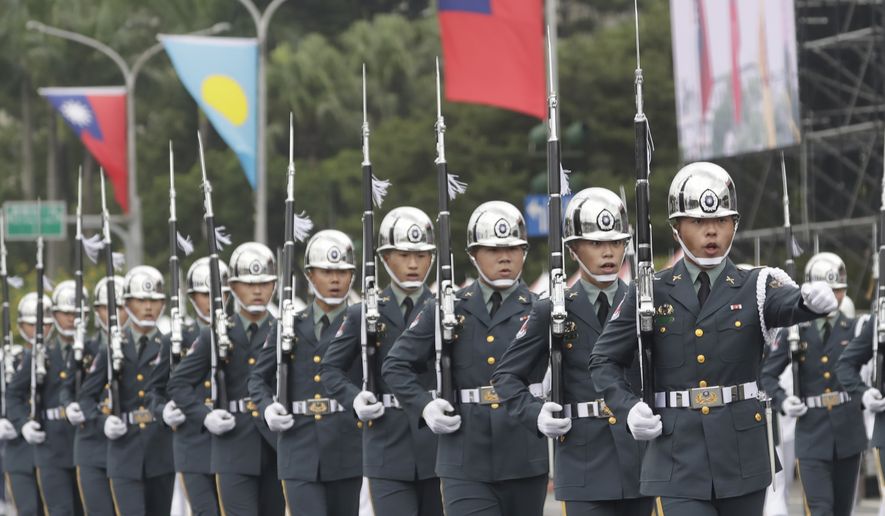
China’s threat to absorb Taiwan — through possible military action if necessary — has sent nerves soaring in this city while sparking debate half a world away in Washington about the long-held policy of “strategic ambiguity” of what exactly the U.S. military would do to protect the island democracy from an invasion.
Some argue that the era of strategic ambiguity is over. President Biden has responded to increased Chinese military drills near Taiwan by saying U.S. forces will defend the island in the event of an “unprecedented attack.”
Beijing and Washington have traded charges over which one is trying unilaterally to change the status quo.
Mr. Biden’s aides insist that the U.S. policy of deliberate vagueness has not changed. Others say Mr. Biden has further muddled a policy that deserves clarification in the face of Beijing’s growing threats.
A parallel debate is playing out in Taiwan’s bustling, modern capital. Officials often acknowledge privately that they wish their government would more aggressively declare independence from China on the world stage but are wary that doing so would provoke Beijing to launch a war to “reclaim” the island under the control of the Communist Party regime on the mainland.
The result leaves the nearly 24 million citizens of Taiwan, which has had a separate government from Beijing since 1949, in a kind of netherworld of the international order.











